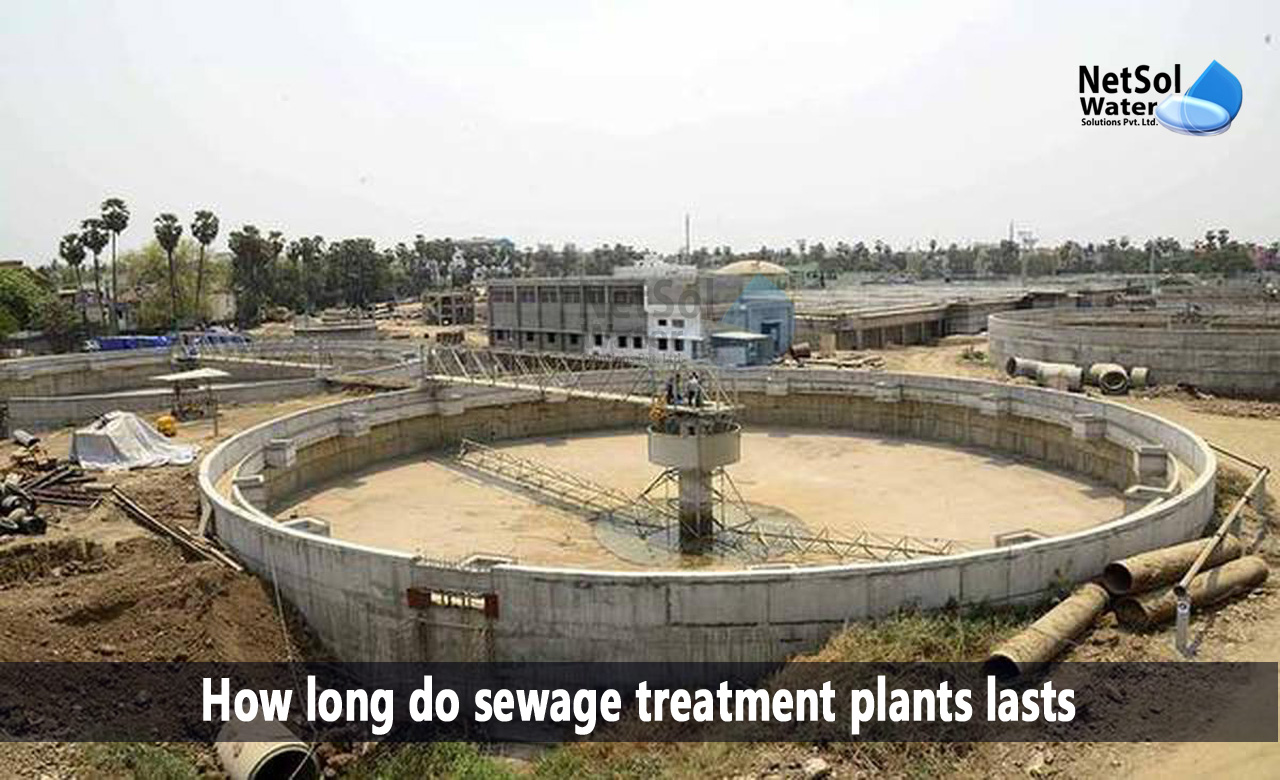A sewage treatment facility is in charge of cleaning wastewater thoroughly, and removing toxins before it is released back into the environment. It is undeniable that without sewage treatment methods, peoplewould become ill or die,and water would quickly become contaminated and dangerous to use.
How long do sewage treatment plants lasts?
The typical lifespan of a wastewater treatment facility is 40 to 50 years, while that of its treatment equipment is 15 to 20 years. As a result, in order to increase their lifespans, the majority of Publicly Owned Treatment Works (POTWs) built in the early 1970s need to be improved, repaired, or replaced.
These changes are essential to prevent nutrient concentrations in surface waters, and to perform efficient stormwater management to prevent overflow.
Factors affecting sewage treatment plant life expectancy?
Older pumps, motors, and other equipment require more energy than newer, more energy-efficient components, thus a wastewater treatment plant nearing the end of its lifecycle, produces greater greenhouse gas emissions.
1. the smallest of towns.
2. first-stage media filtration.
3. organic matter elimination by anoxia.
4. combining activated sludge with fixed film.
5. replacement of oxygen supplying equipment (blowers).
6. replacement of variable frequency drives and motors.
Outdated or incompatible equipment’s!
Wastewater pipes typically last between 50 and 100 years. Groundwater and stormwater can enter the networks through fractures and joints in collection systems, due to wear and tear. These issues rapidly worsen whenever groundwater or stormwater manages to seep in.
Sanitary sewage overflows are the outcome of overworked wastewater collection systems. Additionally, the mismatch between pumps, flow control, and motor requirements and treatment plant requirements, can result in increased energy expenditures and overworked equipment that wears out sooner.
Extend sewage treatment plant life!
1: Regular sewage treatment plant pumping extends it. Increase the lifespan by routine pumping, water conservation, and prudent maintenance.
2: The owner has complete control over all other aspects, such as adequate upkeep.
3: The longevity of the system can be increased by years, or even decades with adequate maintenance and care.
4: Regular pumps, water conservation throughout the home, and paying attention to what goes down the drains, are the three most crucial things that owners can manage.
5: There are no corrosive substances, paints, greases, residues, or other solids.The drainage area needs to be shielded from harm as well.
6: To avoid soil saturation, drain the roof and garden of any excess water, directly into the drain.
How can we assist?
Sewage Treatment plants from Netsol Water have been able to serve communities, for many years thanks to our comprehensive assistance from the pre-application stage, to the design and construction phases.
If you have any questions about sewage treatment plants, or if you would like to discuss your specific needs, please contact the Netsol Water team right away. Our team is an expert in sewage treatment and can help you tailor a solution, to your specific requirements.
Netsol Water is Greater Noida-based leading water & wastewater treatment plant manufacturer. We are industry's most demanding company based on client review and work quality. We are known as best commercial RO plant manufacturers, industrial RO plant manufacturer, sewage treatment plant manufacturer, Water Softener Plant Manufacturers and effluent treatment plant manufacturers. Apart from this 24x7 customer support is our USP. Call on +91-9650608473, or write us at enquiry@netsolwater.com for any support, inquiry or product-purchase related query.



